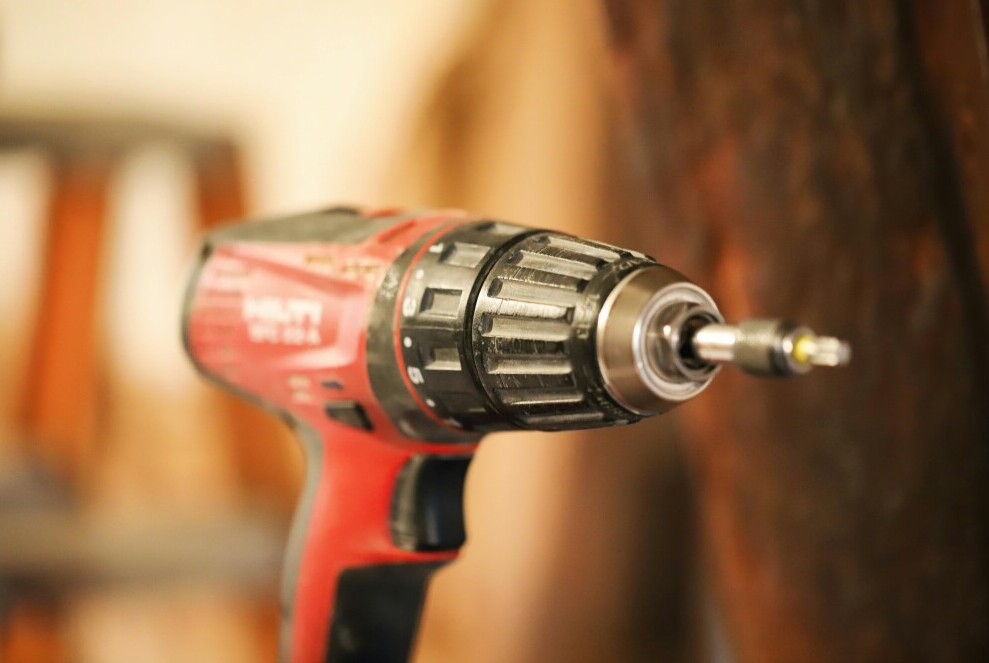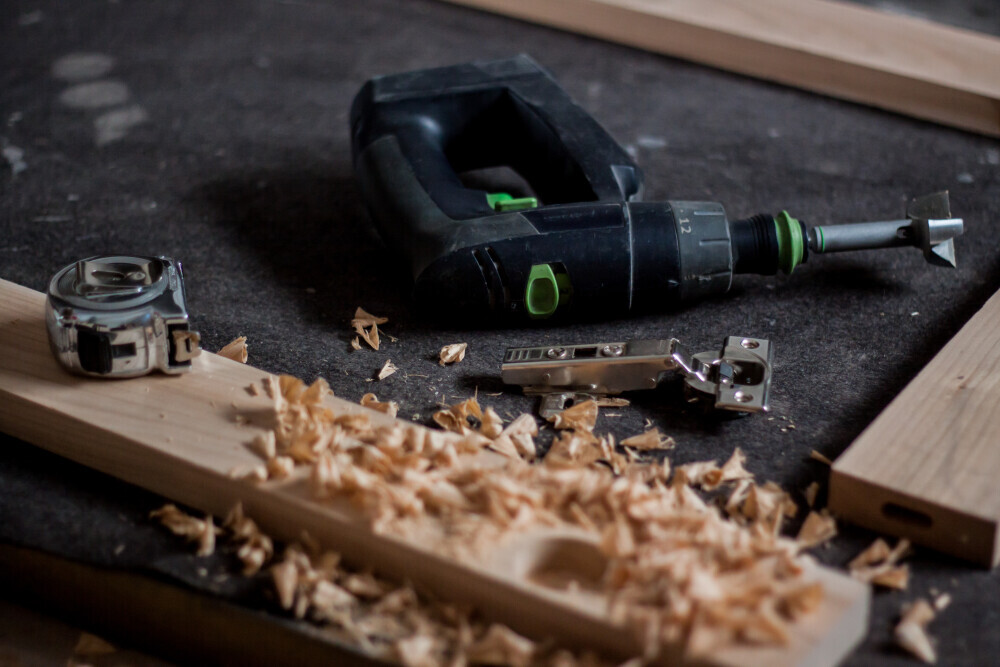If you’re looking for pro-grade power tools, you’ll come across Hilti and Festool drills almost everywhere. These two brands have developed a bit of a reputation for building tools that keep up on the jobsite and in the workshop. But if you’re hunting for a new drill, deciding between them can feel like a tough call.
Hilti drills are often called the go-to for construction sites thanks to their durability and power. On the flip side, Festool is recognized for its top-tier precision and smooth operation, especially in woodworking. Both brands offer tools with impressive performance, but the way they go about it, and who they’re best for, can make a big difference.
I’ve compared Hilti and Festool drills across power, performance, features, and overall value. Here’s what I found and what you’ll want to know before buying.
Hilti vs. Festool: Brand Snapshots

Quick Overview of Hilti
Hilti focuses mainly on the construction and building industry. Their cordless and corded drills are tough, made to handle heavy duty materials like concrete and masonry. The red and grey tools are pretty common on big job sites because they’re reliable and pack a punch, even after rough treatment.
Hilti Drills are a Good Fit For:
- Construction crews and contractors who need serious drilling power
- People drilling into concrete, brick, or steel on a regular basis
- Anyone who wants tools that can take some heavy hits and keep going
Hilti Pros & Cons
Pros:
- Super tough build quality
- Great power for demanding tasks
- Warranty and support are some of the best in the industry
Cons:
- Usually more expensive than other brands
- Heavier than woodworking centered drills
- Overkill for light work or home repairs

Quick Overview of Festool
Festool is especially popular with cabinet makers, woodworkers, and pros who want ultra precise tools. Their drills are known for smooth performance, advanced features, and thoughtful design touches that help with accuracy and user comfort. For anyone who works with wood or demands fine control, Festool tools are really appealing.
Festool Drills are a Good Fit For:
- Woodworkers and carpenters who value clean, precise holes
- DIY folks who want pro level features
- Workshops favoring tools that are easy on the hands and wrists
Festool Pros & Cons
Pros:
- Exceptionally accurate and smooth drilling
- Thoughtful ergonomic design
- Includes extras like fast chargers and multiple chucks
Cons:
- No budget models; everything is high end
- Not ideal for heavy masonry or steel
- Replacement parts and accessories can get pricey
Drill Feature Comparison: Power, Torque & Performance
- Power & Torque Output
Why it matters: If you’re drilling through tough material, or you need fast, repeatable holes, you want a drill that won’t bog down.
Hilti: Most Hilti cordless drills push out serious torque, sometimes 50 Nm or more. Some heavy duty models go higher, especially the hammer drill versions geared for concrete. These drills usually have multiple speed settings and a deep chuck grip for larger drill bits.
Festool: While Festool drills don’t always match Hilti’s raw torque numbers, they’re no slouches, often delivering up to 40 Nm on the flagship cordless models. Festool’s motors focus more on smooth, consistent delivery, great for countersinking, pockethole work, or precision drilling.
Which one’s better? If you work mainly with hard masonry or thick steel, Hilti is hard to beat. For cabinetry or detailed woodworking, Festool’s power is more than enough, and you won’t struggle with bulky weight. - Precision & Control
Why it matters: Smooth starts, even speed, and easy speed changes matter a lot for woodworking or assembly jobs.
Hilti: Offers variable speed triggers, but their focus is mainly on grunt. Control is good, but not the main draw.
Festool: Known for ultra smooth triggers, excellent clutch settings, and clever additions like Centrotec quickchange systems and removable chucks. The balance and feel make a real difference during long sessions.
Who shines? Festool’s focus on precision and balance is tough to match. If crisp, tearout-free holes and accurate screwdriving are your thing, Festool wins here. - Durability & Build Quality
Why it matters: Tools that last longer, especially in rough conditions, save you money and downtime.
Hilti: These are tanks. Full metal gearing, reinforced housings, and electronic protection mean they survive drops and dust. The warranty (often 20 years for some parts) is a real perk.
Festool: Also built to last, with highgrade components and tight tolerances. They’re not designed for demolition sites but hold up well in professional workshops.
My verdict: Hilti edges it for pure ruggedness, but Festool’s fit and finish feel like driving a luxury car; smooth and satisfying. - Battery Tech & Runtime
Why it matters: Nobody wants to babysit chargers all day.
Hilti: Hardhitting batteries, smart charge tech, and often very quick recharge rates. Batteries work across their full tool lineup, which is handy for the jobsite.
Festool: Slightly smaller battery options, but they charge up fast and deliver steady power throughout the charge. Festool’s “AIRSTREAM” cooling cuts recharge time a lot.
Which impresses? Both are solid here, but Hilti might be better for all day, continuous site use. Festool’s systems suit workshop setups really well. - Ergonomics & Extras
Why it matters: Comfort is key when you’re drilling dozens or hundreds of holes.
Hilti: Comfortable grips, antivibration, and balanced weight, especially on the newer cordless models.
Festool: These drills are super light, compact, and designed to avoid fatigue. You’ll also find cool extras like angle adapters, interchangeable chucks, and smooth belt clips in the Systainer kit boxes.
Who stands out? Festool’s user friendly approach makes a real difference if you use your drill all day for finer tasks.
User Feedback & Word on the Street
- Hilti: Praised by construction workers and remodelers. Lots of love for long term durability and easy battery swaps. Some wish the drills were lighter.
- Festool: Gets rave reviews from woodworkers and fine finish specialists. People call out the comfort, amazing precision, and smart extras. Sticker shock is a common complaint.
General Reputation: Both brands lead in their niches, but your work style and material will play a big role in how happy you end up.
My Quick Picks: Which Drill Might Fit You Best?
Both Hilti and Festool drills have their strengths, so the best pick comes down to your main projects. Understanding the core strengths and common critiques from real world users is key. After all, grabbing the right drill can make your projects go smoother and quicker while saving you from headaches in the long run.
Choose Hilti if you:
- Work in construction, concrete, or metal regularly
- Need one drill for lots of rough job sites
- Prioritize maximum power and don’t mind the extra weight
Choose Festool if you:
- Care about clean, precision work (like cabinetry or finish carpentry)
- Value comfort, extras, and a lighter tool
- Want quick accessory and chuck swaps
It’s worth checking out the latest models and reading up on what’s included in each kit. For example, Festool Systainer sets often come with interchangeable chucks and smart accessories, while Hilti might include extra batteries or an extended service plan. Each brand keeps rolling out upgrades, so their new drills keep getting better in small ways from year to year. Researching your specific drill needs, like whether you need a hammer function or just standard drilling, can help you pick what’s right.
Both brands hold up well, but matching your tool to your work style and material is really important. Take the time to compare specific models, and you’ll stumble upon a drill that’s up for just about anything you throw at it. With either Hilti or Festool, you’re getting tools that pros trust—and you’ll notice the difference in performance and feel on the job.
